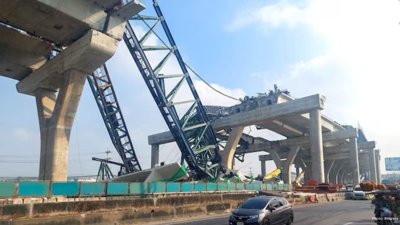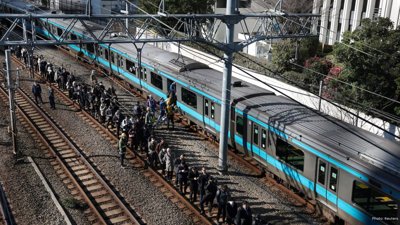
Post by : Armust Desk
The Indian government is taking a significant step to improve passenger experience at airports across the country. The proposal is to link the charges passengers pay at airports with the quality of services provided. This means that the fees collected at airports will no longer just depend on fixed rules but will reflect how well an airport serves its passengers. If an airport provides excellent facilities and services, it can charge higher fees, but if services are poor, the charges may be reduced. This approach is expected to motivate airport operators to focus more on the passenger experience and service quality.
The Airports Economic Regulatory Authority of India, known as AERA, is at the center of this initiative. They are responsible for regulating airport charges and ensuring that airport services meet high standards. The new proposal emphasizes that the current system, which mainly looks at financial and operational factors, is not enough to ensure passenger satisfaction. By linking charges to service quality, the government aims to create an environment where airports are constantly motivated to improve facilities and services.
Key Components of the Proposed System
The proposed system will evaluate airports based on several critical aspects of service that directly affect passengers. The main components being considered include:
Baggage Handling: Airports will be assessed on how efficiently they handle passengers’ luggage. Delays in delivering luggage or lost baggage can cause stress and inconvenience. Airports with smooth and timely baggage handling will be rewarded, while airports with poor handling may face reduced charges.
Check-in Process: The check-in process is one of the first experiences passengers have at an airport. Long queues, slow processing, or unclear instructions can make this experience frustrating. The proposed system will assess the efficiency of check-in counters, staff behavior, and overall speed of the process.
Security Checks: Security is essential at airports, but long and complicated security procedures can cause discomfort and frustration. Airports will be evaluated based on how efficiently security checks are conducted without compromising safety. A faster, smoother, and organized process will result in higher service ratings.
Cleanliness and Hygiene: Cleanliness is one of the most visible aspects of airport service. Restrooms, waiting lounges, boarding areas, and other public spaces will be evaluated for hygiene and maintenance. Airports that maintain high cleanliness standards will receive higher scores, while poorly maintained airports may be penalized.
Ambience and Comfort: The overall comfort of passengers is also crucial. This includes seating arrangements, air conditioning, signage, accessibility, and other factors that contribute to a pleasant experience. Airports with a welcoming and comfortable environment are likely to score better.
These assessments will not be one-time evaluations but will be conducted regularly to ensure consistency and continuous improvement. The goal is to encourage airports to maintain high standards and provide passengers with a better experience throughout the year.
Why This Policy Is Important
Currently, many cities in India have only one major airport, which reduces competition. In such cases, passengers often have limited options and may experience poor service without any alternatives. The new policy addresses this problem by directly linking airport charges to service quality.
By doing this, airports will be financially motivated to improve their services. They cannot simply charge higher fees without providing better services. This system will create accountability and ensure that passengers are treated fairly. Moreover, it encourages airport operators to prioritize passenger needs and invest in improving facilities.
This initiative is expected to bring Indian airports closer to international standards. Many global airports already use service-based evaluations to determine fees and incentives, and India is taking a step in the same direction.
Expected Benefits for Passengers
The new policy is expected to offer several advantages for passengers:
Better Services: Airports will strive to meet higher standards in all areas, from baggage handling to seating arrangements. Passengers can expect improved facilities, better cleanliness, and smoother processes.
Fair Charges: Fees paid by passengers will reflect the quality of services they receive. This ensures that passengers are not overcharged for poor service and are rewarded with better experiences when paying standard fees.
Enhanced Comfort and Convenience: Passengers can look forward to a more organized and comfortable airport environment. Long waiting times, crowded spaces, and poorly managed facilities will be minimized as airports work to improve.
Motivation for Continuous Improvement: Airports will no longer rely on their monopoly or market size. Continuous monitoring and evaluation will push them to maintain high service standards consistently.
Implementation and Timeline
The policy is still under review by government authorities and regulatory bodies. A detailed framework is being developed to ensure that all major airports in India can comply with these new standards. Once the system is finalized, it will be gradually implemented across airports in various cities.
The implementation will involve monitoring and evaluating airports regularly. Airports that meet or exceed expectations will be rewarded financially, while those that fall short may face reduced charges. This reward and penalty system is designed to maintain a balance between encouraging good service and ensuring accountability.
The government also plans to involve passenger feedback as part of the evaluation. Travelers’ experiences, complaints, and suggestions will play a crucial role in determining service quality scores. This will ensure that the system is truly passenger-centric and focused on improving travel experience.
Challenges and Considerations
Implementing such a system will not be without challenges. Airports vary in size, passenger volume, and available resources. Ensuring a fair and balanced evaluation system will require careful planning. Airports in smaller cities with limited resources may need special consideration to maintain fairness.
Another challenge is training staff and upgrading facilities to meet new standards. Airports will need to invest in technology, staff training, and infrastructure improvements. While these changes may involve additional costs initially, they are expected to bring long-term benefits by attracting more passengers and improving overall satisfaction.
A Step Toward Modern Airports
This policy represents a significant step toward modernizing India’s airports and bringing them closer to international standards. Linking charges to service quality ensures that airports are motivated to prioritize passengers and provide better facilities. It also aligns financial incentives with passenger satisfaction, creating a system where both airports and travelers benefit.
Passengers can look forward to cleaner, safer, and more comfortable airports, while airport operators will be encouraged to invest in improvements that enhance the overall travel experience. Over time, this initiative may transform India’s airport system, making it more efficient, passenger-friendly, and globally competitive.
The Indian government’s proposal to connect airport charges with service quality is a progressive step that aims to improve the travel experience for millions of passengers. By evaluating airports based on critical service parameters and linking financial incentives to performance, the policy encourages continuous improvement, fairness, and accountability.
India, airport charges, service quality, AERA, passenger experience, baggage handling










Advances in Aerospace Technology and Commercial Aviation Recovery
Insights into breakthrough aerospace technologies and commercial aviation’s recovery amid 2025 chall

Defense Modernization and Strategic Spending Trends
Explore key trends in global defense modernization and strategic military spending shaping 2025 secu

Tens of Thousands Protest in Serbia on Anniversary of Deadly Roof Collapse
Tens of thousands in Novi Sad mark a year since a deadly station roof collapse that killed 16, prote

Canada PM Carney Apologizes to Trump Over Controversial Reagan Anti-Tariff Ad
Canadian PM Mark Carney apologized to President Trump over an Ontario anti-tariff ad quoting Reagan,

The ad that stirred a hornets nest, and made Canadian PM Carney say sorry to Trump
Canadian PM Mark Carney apologizes to US President Trump after a tariff-related ad causes diplomatic

Bengaluru-Mumbai Superfast Train Approved After 30-Year Wait
Railways approves new superfast train connecting Bengaluru and Mumbai, ending a 30-year demand, easi